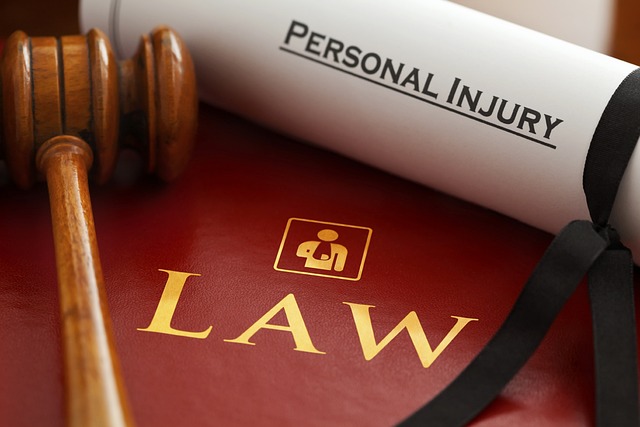Personal injury law governs cases where individuals suffer harm due to another's negligence, encompassing scenarios like car accidents, medical mistakes, and other incidents of carelessness. When navigating these legal waters, it is crucial to secure experienced legal counsel to manage your case effectively, from evidence gathering to interacting with insurance companies or representing you in court if necessary. A competent personal injury attorney will tailor their approach to the unique circumstances of your situation, helping you to understand and assert your rights for compensation that covers medical costs, income loss, and intangible losses like pain and suffering.
Recognizing the nuances within personal injury law is vital, as it is an area that evolves with societal changes, judicial interpretations, and legislative updates. Recent court rulings have set new precedents for proving negligence and assessing damages, which can significantly affect the outcome of cases across different jurisdictions. Attorneys must keep up-to-date with these developments to provide the most effective representation for their clients.
In personal injury litigation, attorneys must meticulously analyze each case's details, employ expert witnesses for specialized testimony, and stay informed on the latest legal trends and statutory changes. They must also be adept at procedural rules and skilled in negotiation to ensure their clients receive fair compensation, which can include economic damages such as medical expenses and lost income, as well as non-economic damages like pain and suffering. In extreme cases, punitive damages may be awarded as a form of punishment and deterrence for particularly egregious behavior. Mastery of personal injury law is essential for anyone involved in such disputes to navigate the legal system with confidence and understanding of their rights and potential outcomes.
navigating personal injury law can be a complex journey post-accident, with rights and entitlements that require clear understanding. This article delves into the latest developments in personal injury case law and legislation, ensuring readers are informed on current legal standings. It also outlines strategic representation approaches, offering guidance for those seeking justice. Furthermore, it clarifies compensation aspects, detailing the types of damages one may claim in personal injury cases. Understanding personal injury law has never been more accessible or timely.
- Navigating Personal Injury Law: Understanding Your Rights Post-Accident
- The Latest Developments in Personal Injury Case Law and Legislation
- Strategies for Effective Representation in Personal Injury Cases
- Compensation Explained: Types of Damages Awarded in Personal Injury Claims
Navigating Personal Injury Law: Understanding Your Rights Post-Accident

When an individual suffers an injury as a result of another party’s negligence or wrongful act, navigating personal injury law becomes crucial in understanding one’s rights post-accident. Personal injury law is a legal field that offers recourse to those harmed due to the carelessness or misconduct of others. It encompasses a range of situations, from vehicular accidents to medical malpractice and beyond. Upon encountering such an event, it’s imperative to recognize the importance of seeking competent legal counsel well-versed in personal injury law. A qualified attorney can guide you through the complexities of this specialized area, ensuring your rights are safeguarded throughout the process. They will assess the merits of your case, gather evidence, and negotiate with insurance companies or represent you in court if necessary. Understanding that each case is unique, the legal process following an injury can be daunting without proper representation. Therefore, familiarizing oneself with personal injury law and its application to your specific circumstances is a prudent step towards securing the compensation you may be entitled to for medical expenses, lost wages, and pain and suffering. By doing so, you empower yourself to navigate this challenging terrain with greater confidence and clarity.
The Latest Developments in Personal Injury Case Law and Legislation

Personal injury law continues to evolve, reflecting societal changes and judicial interpretations that shape how claims are handled and outcomes determined. In recent years, there have been significant developments in case law that have influenced the landscape of personal injury litigation. Notably, courts have handed down decisions that address the thresholds for proving liability, the assessment of damages, and the application of statutory limits on compensation. For instance, a series of rulings has clarified the standards for establishing negligence, which could lead to more or less favorable outcomes for plaintiffs depending on the jurisdiction. Additionally, legislative changes have also been pivotal, with some regions enacting new laws that affect the statute of limitations, contributory negligence doctrines, and the types of damages recoverable in personal injury cases. These legal shifts underscore the importance for individuals and legal practitioners to stay informed about the latest trends and judicial decisions in personal injury law to effectively navigate this dynamic area of legal practice. Legal professionals must remain vigilant and adaptive to ensure that their clients receive the best possible representation in light of these ongoing changes.
Strategies for Effective Representation in Personal Injury Cases

Navigating personal injury law requires a nuanced approach that balances legal strategies with effective representation to secure favorable outcomes for plaintiffs. Attorneys specializing in this field must be adept at constructing compelling arguments based on the specifics of each case. This involves meticulously examining the circumstances surrounding the incident, gathering comprehensive evidence, and presenting a clear narrative that demonstrates the liability of the defendant and the extent of the plaintiff’s injuries and resulting damages. A key strategy is to engage expert witnesses who can provide authoritative testimony on matters such as medical prognoses, economic losses, and the impact of the injury on the plaintiff’s quality of life. Additionally, staying abreast of relevant case law and statutory changes in personal injury law ensures that attorneys can anticipate and counter legal arguments presented by the defense. By combining these elements with a deep understanding of procedural rules and the dynamics of negotiation, attorneys can effectively represent their clients in personal injury litigation.
Compensation Explained: Types of Damages Awarded in Personal Injury Claims

Navigating personal injury law often leads to understanding the various types of damages that can be awarded in such claims. These damages are categorized into two main categories: compensatory and punitive. Compensatory damages are further split into economic and non-economic damages. Economic damages aim to compensate for tangible financial losses, such as medical expenses, lost wages, and property damage incurred due to the injury. Non-economic damages, on the other hand, address more subjective consequences, including pain and suffering, loss of enjoyment of life, and emotional distress.
In personal injury law, the nature and extent of damages are determined by evaluating the specifics of each case. The goal is to provide a just and fair recompense to the injured party, ensuring they are not left in a financially precarious position due to someone else’s negligence or wrongful act. Punitive damages might also be awarded in certain circumstances, particularly when the at-fault party’s behavior is especially egregious or malicious. These damages serve as a deterrent and punish the offender beyond the standard compensatory awards. Understanding these components of personal injury law is crucial for anyone involved in such litigation to navigate the complexities of the legal system effectively.
navigating personal injury law can be a complex journey post-accident, but with a clear understanding of one’s rights and the latest developments in case law and legislation, individuals can better position themselves for effective representation. This article has outlined key strategies and types of damages that are typically awarded in personal injury claims, providing valuable insights for those affected. In conclusion, personal injury law serves as a critical mechanism for justice and recovery for injured parties. It is advisable to consult with experienced legal professionals who specialize in this field to ensure the best possible outcome for your case. For comprehensive guidance on personal injury law, staying abreast of current legal trends is essential.
